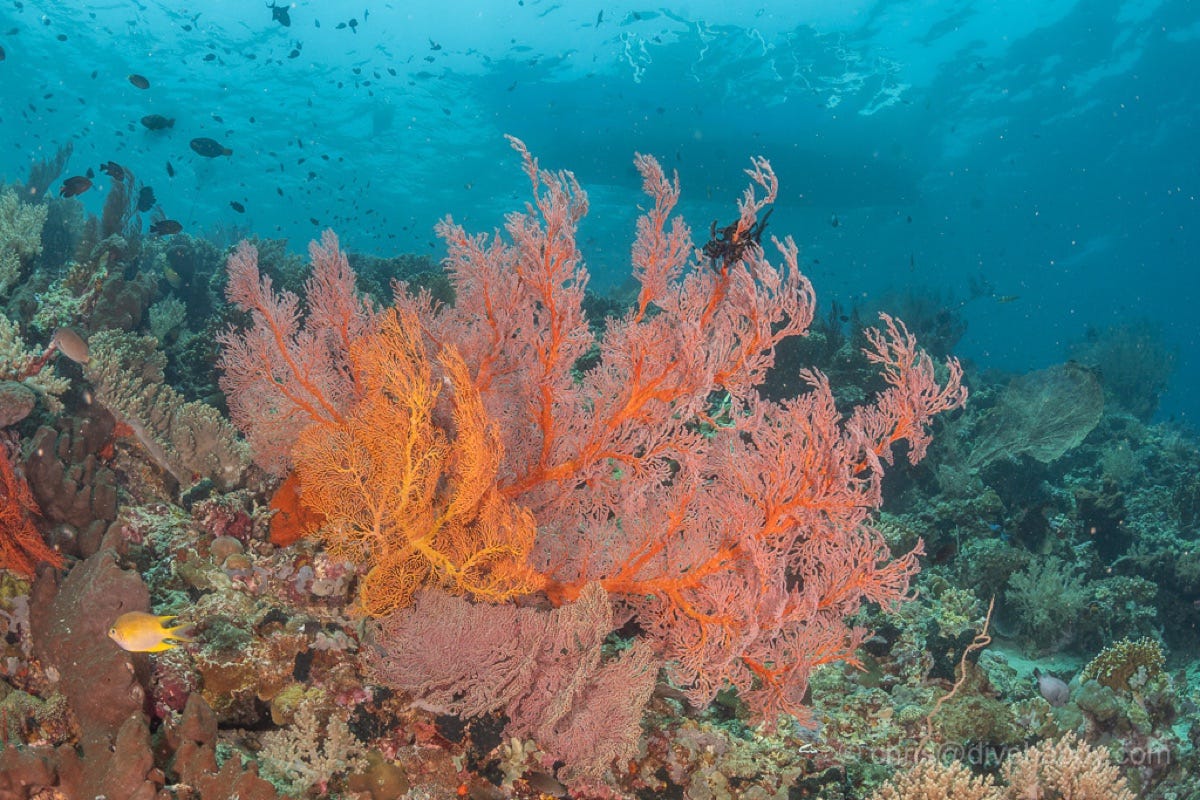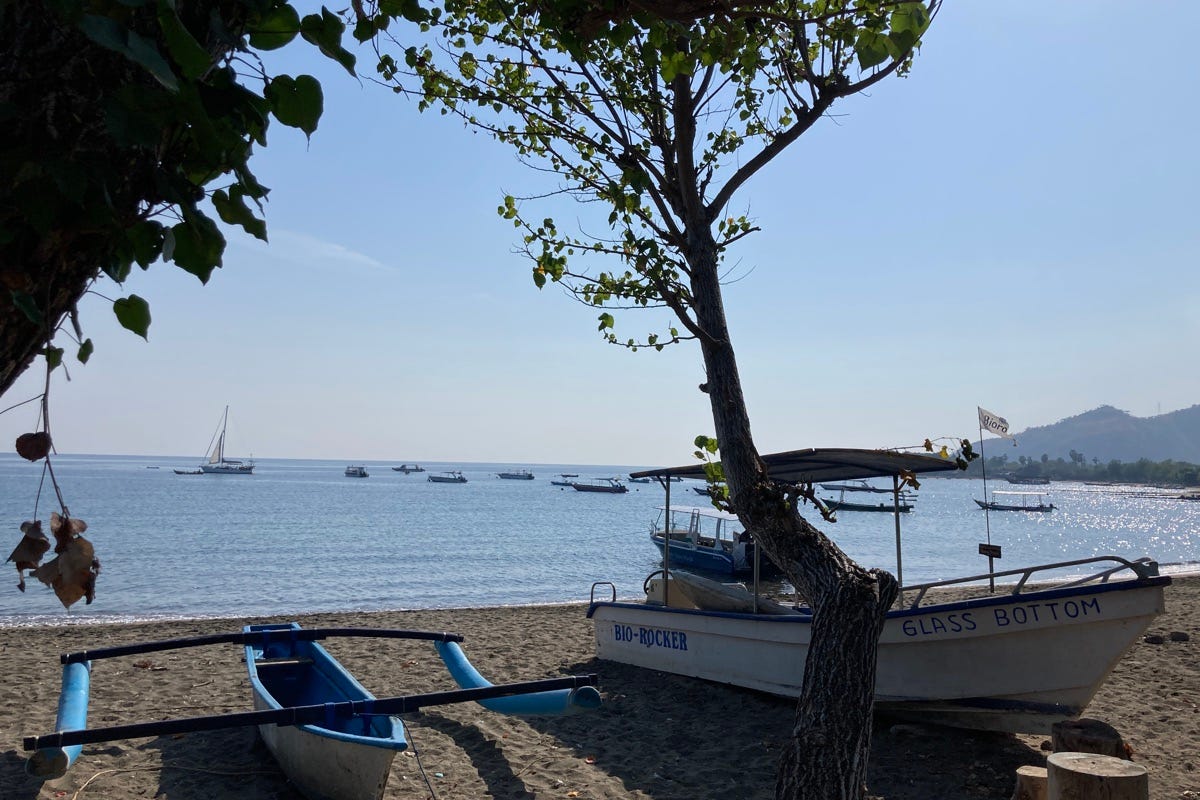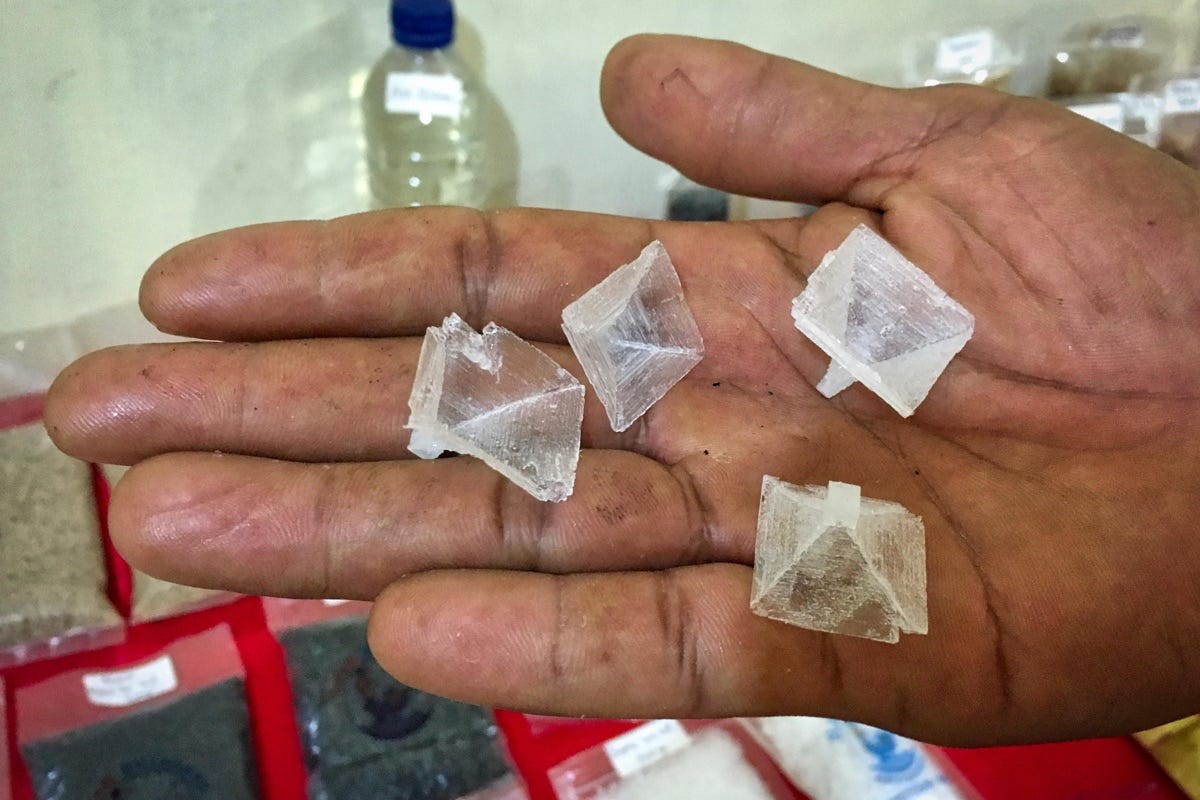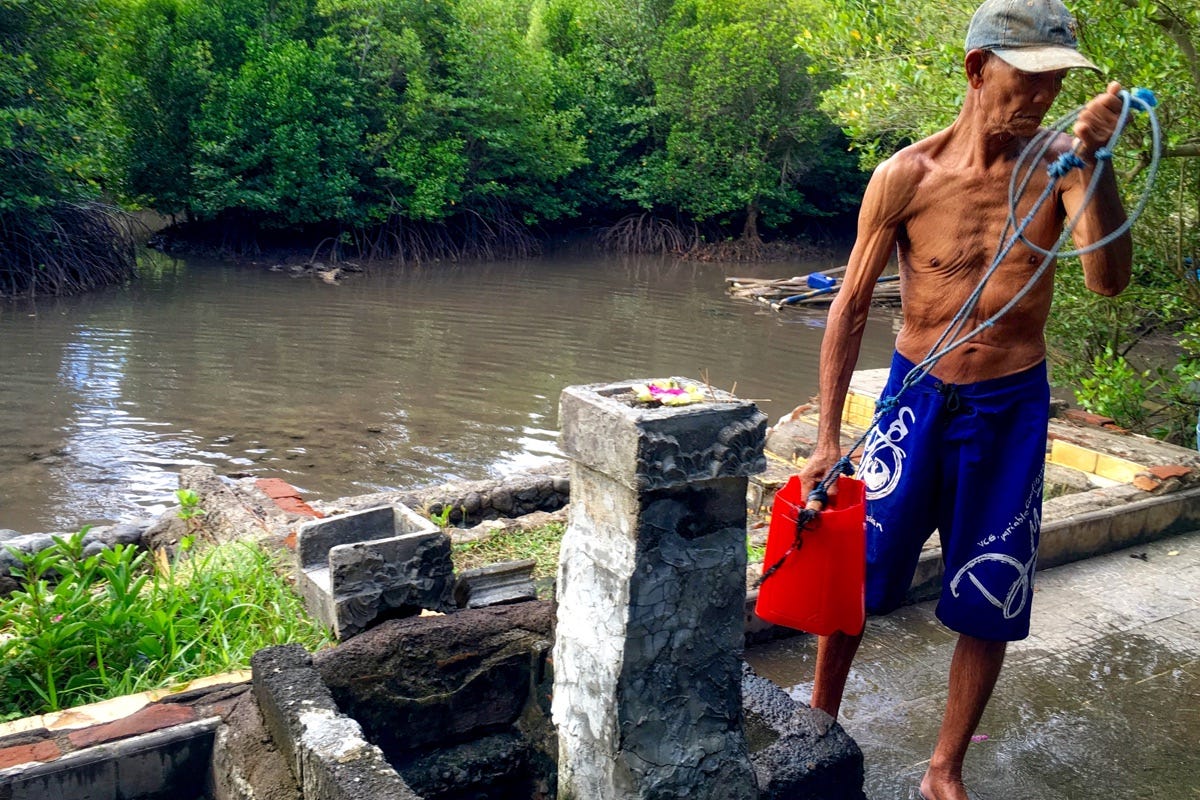A quick word of introduction. My name is Stuart McDonald and this is Couchfish—the perfect tub of ice-cream for the traveller stranded on the couch. The newsletter has both a paid edition which traces a fantasy itinerary through Southeast Asia, and a free one that covers, well, everything else. If you’d like to support me finding more tourism stuff to moan about, please consider becoming a paid subscriber. Thank you.
I’m just back from a terrific four-day diving trip to Pemuteran in West Bali, and while there’ll be an upbeat post on that tomorrow, today I’m having a bit of a rant.
Pemuteran is a long thin town, strung out shoelace-style along the far western north coast of Bali. It isn’t, at first glance, the most endearing of spots, but thanks to its proximity to Menjangan Island, with its bountiful diving and snorkelling, it’s long had a stumbling-along “tourism scene.” The main—and only—road runs right through the centre of town, and for a couple of kilometres resorts and small homestays line its journey.
The reefs are prettier than town to be honest. Photo: Chris Mitchell.
Most of the fancier—I’m being generous here—places are on the beach side of the road, while the off-beach side hosts a gaggle of small, family-run homestays. My daughter Lyla and I opted for the latter, choosing a small, five room place down a dusty dirt road more of less in the centre of things.
As with the rest of Bali, during the pandemic, tourism withered on the vine. Homestays, hotels, restaurants, cafes, dive shops, and many more closed down—some never to re-open. For those who survived, Bali’s reopening brought with it the promise of brighter days—even to far-flung destinations like Pemuteran. With the brighter days though, came something else.
Killing non-diving time, I spent an hour chatting with a couple of homestay owners over coffee. For both of them the pandemic had been brutal. Small homestays are rarely used to underwrite a luxury yacht or shopping trips to Hong Kong, instead they more often than not form but one part of the family’s means of living, leaving little for savings. The husband might be hands-on with the business, while the wife works both at the homestay and outside. Atop the room revenue, owners might offer tours, food, or some other service to supplant the base earnings.
Pemuteran’s beach isn’t one of Bali’s best, but the water is wet and there is sand. Photo: Stuart McDonald.
Where we were staying, a room cost around 160,000 rupiah (about US$11), giving them, with five rooms, an earning capacity of under US$60 a day before any add-ons. This is before the costs of course—the often leased land, the support staff, be they cooks, cleaners or whatever. During the pandemic, the latter were let go, while the former, well, there’s no stopping the clock on leased land.
The two owners told me it was before even the first wave of Bali’s returning tourism had ebbed that the emails started coming in, one owner saying:
“At first, very early, it was only one or two, but by high season, many many.”
The emails, from “travel influencers,” were cold-calling, looking to promote the homestay. According to the owners, the emails were similar, with little changed between homestays other than the property name. The influencers would offer to write about the business, to help them recover, to help them find more guests.
The sunsets on the other hand… Photo: Stuart McDonald.
But there was a catch—this wasn’t a free service. Most asked for in the least a complimentary room, sometimes for long periods of stay. For others though, this wasn’t enough, this was a fee-for-service deal. In one case the owner recounted an influencer asking for US$500—and a free stay of a few nights—in return for writing about the property on their blog. The owner shook his head saying that represented weeks of income for him—and for what?
For what indeed?
While it tends to be most prevalent at the fancier end of the stick, complimentary stays and pay-for-play have long been an unsavoury part of the travel industry—and something I’m proud to say Travelfish has never partaken in. We are though, it seems by what the owners were telling me, the exception to the rule. While I don’t agree with the practice of comped stays and so on, I do understand the math behind it. Taking advantage of a pandemic though, to grind free stays and money out of people who could not afford it seemed to plunge new depths of icky.
“If you give me some free salt I’ll write about it.” Urrggh. Photo: Sally Arnold.
Overall, these approaches struck me as nothing more than rent seeking. The economic imbalance between the influencers and the business owners was staggering. If travellers want to help businesses recover from what has been an unprecedented upheaval in the industry, by all means do so, but motivations need to be in line. Cold-calling some small family-owned business, one that has barely survived the pandemic, and hitting them up for a free slot of nights with a cash chaser is parasitical in the extreme.
My advice to the guesthouse owners was clear. No, no, no, always say no. Concentrate on your real guests. Keep them happy, look after them and welcome them with the hospitality Bali is famous for. I want to say this is effortless, but it isn’t—doing this stuff right is a tremendous amount of work, and yet great homestays do make it seem effortless. By all means encourage guests to write reviews, or post photos, or whatever on social media, but more than anything else, encourage them to tell their friends.
Who do you want to carry water for you? At Banyu Wedang Hot Springs. Photo: Sally Arnold.
I say this because nothing beats word of mouth, nothing. It isn’t something one can buy, rather, true word of mouth is something that is earned. There’s also an important difference when it comes to word of mouth—it informs rather than influences. As my travel writer friend Joshua Zukas wrote to me regarding this:
“Who on earth wants to be influenced anyway? Wouldn’t one rather be informed?”
Couchfish is 100 per cent independent and reader-supported. If you’re not already a subscriber, and you’d like to show your support, become a paying subscriber today for just US$7 per month—you can find out more about Couchfish here—or simply share this story with a friend.
Don’t forget, you can find the free podcasts on Apple, Pocket Casts and Spotify as well as right here on Couchfish.
















Share this post